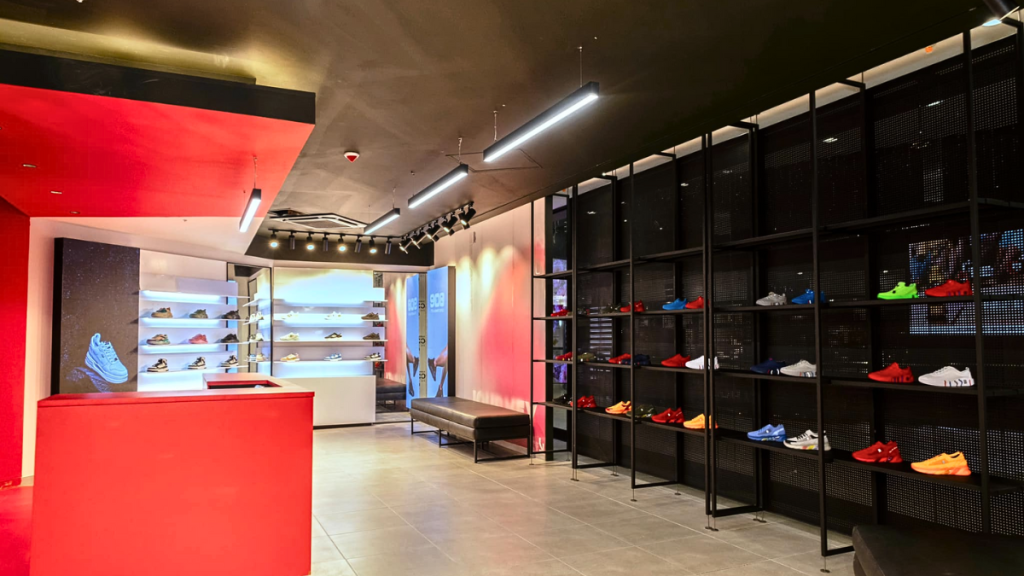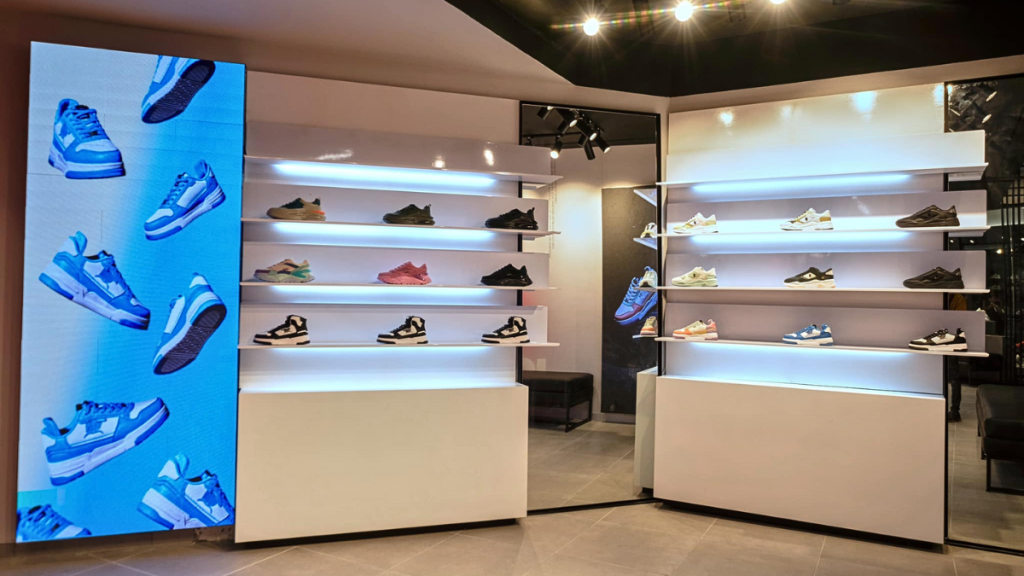Home › Forums › NATS NIBBLES › The man who had over a dozen rejections and then launched one of Africa’s most successful shoe brands-written by Seth Thorne
- This topic is empty.
-
AuthorPosts
-
2025-03-05 at 22:48 #463317
 Nat QuinnKeymaster
Nat QuinnKeymasterThe man who had over a dozen rejections and then launched one of Africa’s most successful shoe brands
As the saying goes, “third time’s a charm.” However, for tenacious and visionary South African entrepreneur Theo Baloyi, it is 14.
Baloyi is the founder and CEO of Bathu Sneakers, a uniquely South African sneaker brand that is taking the footwear market by storm.
He has been featured in the Forbes 30 Under 30 list and won GQ’s Business Leader of the Year. His company has been listed among the most admired brands for three years running.
Yet, it has been far from a walk in the park with pretty cool sneakers, having being rejected by 13 different shoe factories before building one of Africa’s biggest sneaker brands.
Baloyi was born in 1989 in the small village of Phake near Hammanskraal. He started school at Shalom Primary School and completed it at Mabothe Senior Secondary School.
During those years, he dreamed of working for an accounting firm. In 2009, he enrolled in a BCom Accounting at the University of South Africa (Unisa) and moved to Alexandra to stay with his uncle.
While at Unisa, he dipped his toes in entrepreneurship by selling perfumes door-to-door.
Baloyi was selected to work for PwC South Africa under their graduate program. Impressed by his work, the company hired him full-time and transferred him to PwC Middle East in Dubai.
There, he maintained the same lifestyle in Dubai as he did before moving there, saving up crucial capital for his future venture.
After a few years, he decided to move back to South Africa to establish a black-owned business that could create sustainable jobs, particularly in underprivileged communities.
The birth of Bathu
His inspiration for starting a sneaker brand stemmed from his deep love for sneakers and the realisation that no African sneaker brands represented the region.
“All of these brands that I loved dearly were all international footwear brands; nothing represented Africa as a region, nothing that resonated with me as a young African man,” Baloyi said in an interview.
“We as Africans consume so much footwear, predominantly sneakers. Why don’t we have a sneaker brand that represents our region?” he asked.
In 2015, he registered Bathu, a common universal slang word primarily used in townships across South Africa to describe a shoe.
He conducted 18 months of research and development. With the concept in hand, he pitched his idea to manufacturers.
He was rejected by the shoe factory 13 times because he wanted to make a shoe entirely out of mesh, which is typically only used as a component in footwear.
Knowing that he would not give up that easily, he flew down to the factory, and they gave him a shot after seeing the desire in his eyes. In 2016, the Mesh Edition Sneaker was born.
Baloyi started the business with 100 pairs as a proof of concept, using the capital he had saved up while working in Dubai.
He began selling from the boot of his car, then a small room in Alexandra. They began selling like hotcakes.
In two weeks, he was back with an order of 400 pairs, then 1,000 in about three weeks, and 4,000 in a month.
The expansion
Baloyi studied how retail businesses function to expand their businesses. He knew that if he wanted to achieve sustainable growth, he needed to corporatise the business and reinvest in the right areas.
This allowed him to learn how crucial it is to have a business with the right skill set. He set out to employ qualified people with experience in logistics and supply chain management.
Bathu bought its first delivery vehicle and opened its first physical store in Newtown Junction Mall in Johannesburg.
An important choice was Bathu products are exclusively available at Bathu stores as part of the company’s retail strategy.
This exclusivity allows them to maintain quality control by inspecting each pair of shoes by hand before shipping to consumers.
As such, the sales kept growing, and so the stores kept opening. The company began rolling out fresh designs, catering to larger audiences.
A big appeal is that Bathu integrates African heritage, culture, and stories into its products.
For example, the Kalanga shoe incorporates the story of the Kalanga clan, which exists in several African countries. Baloyi says it symbolises the unity and diversity of the continent.
From the start, one of Baloyi’s pillars for Bathu was to create 100 meaningful jobs, which was achieved in 2020.
To date, Bathu has close to 40 brick-and-mortar stores, one of which is in Namibia. It also has an online store that contributes 30% of the revenue.
It currently employs about 500 people, of whom approximately 90% are directly involved in the value chain. The remaining 10% are indirectly employed.
Baloyi believes Bathu’s success goes beyond just selling shoes; it is a brand with a strong sense of purpose and community.
That said, Bathu admits to facing the challenge of convincing African consumers to support a local brand, as there is a perception that international brands offer better quality, style, and pricing.
However, this is a feat they believe that they can overcome.
“People are waking up to the fact that this is not just a shoe…we are a shoe brand with a soul because we care about the communities we trade in. We care about our region and the future of the continent,” said Baloyi.
Future plans
Bathu has ambitious plans to expand its manufacturing capabilities in South Africa and its reach across the African continent.
The company is actively pursuing the establishment of a shoe manufacturing facility in South Africa through a collaboration with Chinese partners via the BRICS community.
The aim of this initiative is to foster skills exchange and provide training to local South Africans.
This strategic move is intended to create a local production base and increase employment opportunities in the manufacturing sector.
Simultaneously, Bathu intends to broaden its presence throughout Africa, followed by expansions into East and West African markets.



-
AuthorPosts
- You must be logged in to reply to this topic.
